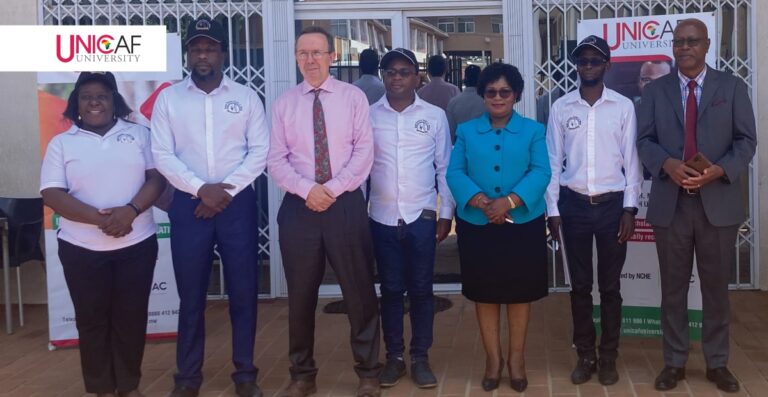Unicaf University in Malawi
Unicaf University in Malawi is accredited by
the National Council for Higher Education (NCHE)
WELCOME TO UNICAF UNIVERSITY IN MALAWI
To nurture academic distinction and critical thinking, sparking innovation among students through a transformative education that is globally pertinent and culturally rich. We are committed to empowering learners with essential 21st-century competencies, utilising state-of-the-art technology, exemplary teaching standards, and meaningful research to drive societal advancement and professional achievement.

About Us
Unicaf University is a Pan-African, independent, accredited university, utilising the best elements of online learning to provide high-quality academic qualifications.

Malawi Campus
Unicaf University provides students in Malawi with the opportunity to earn accredited qualifications through online or on-campus (blended) study. Our modern facility in Lilongwe offers dedicated support services for online students.

Admissions
Take the first step toward transforming your life. Our dedicated team of advisers and experts will guide you through every stage of the admissions process!

Programmes
Unicaf University offers a wide range of exciting undergraduate and postgraduate study opportunities, available both online and on-campus (blended), leading to Bachelor’s, Master’s and Doctoral degrees.
Our Degrees
A Bachelor’s degree from Unicaf University will broaden your professional horizons. Our accredited Bachelor’s programmes provide an in-depth understanding of your field of study, equipping you with the knowledge and skills to launch your career and enhance your personal growth.
Unicaf University offers many exciting opportunities for students seeking to earn a Master’s degree online. Our programmes equip students with the skills to succeed in an ever-evolving workplace.
Our Doctoral degree programmes are designed for current and aspiring leaders and academics seeking to drive systemic change in organisations and society through research. Whether you hold a senior position, aiming to make a community impact or wishing to advance your academic standing, our accredited doctoral degrees position you for significant career and personal growth.

Recognition and Accreditation
Unicaf University is a licensed and accredited university in Malawi and Zambia and is also approved to recruit students in Kenya. Unicaf University in Malawi is accredited by the National Council for Higher Education (NCHE), while Unicaf University in Zambia is accredited by the Higher Education Authority (HEA). Additionally, both campuses are accredited by the British Accreditation Council (BAC) as an Independent Higher Education Provider.
Read our Latest News and Events
PROUD MEMBER OF







